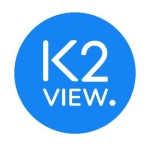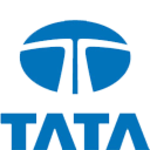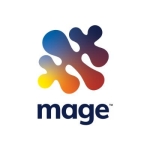What is most valuable?
There are a lot of great features with Test Data Manager. It's allowed us to really revolutionize the way that we are doing our testing. We use Test Data Manager to create synthetic data for our testing purposes. We have a legacy application that has been around for a very long time, and a lot of the people that originally developed it are no longer with the company, so we've had to do a lot what we call, "Data Archaeology," to go in and recreate our data model. Test Data Manager has allowed us to do that, capture that model, and then create that data on demand, saving us a huge amount of time and money in the process.
How has it helped my organization?
It's really allowed us to focus on the craft of testing, and not focus on the creating data, spending time setting up the scenario that we need, or trying to find that sort of thing. It's allowed us to be more focused on our efforts, it's allowed us to be faster. We run an agile shop, and so we've been able to use that data in our pipeline as we deliver stuff in a CICD world. It's been great.
What do I think about the stability of the solution?
It's been very stable. We haven't had any issues with the technology at all.
What do I think about the scalability of the solution?
It has scaled for us very well. We're able to do small amounts of data and large amounts for performance testing.
How are customer service and technical support?
It's been great. They're very knowledgeable in the tool, they've helped us overcome some hurdles as we've been evolving in the practice ourselves and they've been super.
Which solution did I use previously and why did I switch?
Test data creation, for us, was a very manual process. The options were either creating it with hands-on keyboards with people actually having to spend time creating it, and we would also do some things where we would just grab data out of production. That didn't always work for us, because you didn't know what you were going to get when you captured that data.
Not being able to create your own data was very time consuming to create data on your own. Or, when you did things like grab things out of production. You didn't always get all the data combinations that you might need, it just happened to be whatever was there at the time. You certainly weren't getting some of the negative scenarios that we need to test with also.
How was the initial setup?
CA and one of our vendor partners came in and helped us do a Proof of Concept. They helped set up the infrastructure, and then walked us through the application, and actually proved out that we could do in in our environment, because it was, for us, an interesting environment. It was, I wouldn't say easy, but we were able to get it done.
What was our ROI?
The return on investment for us has been great. In the last year, we captured some metrics around our ROI, and we've saved over eleven thousand hours in manual time of trying to create test data. In that same time, that eleven thousand hours, has translated to about eleven million dollars in cost savings, just from that. Additional benefits around being able to shorten our test cycle time, allow us to go deeper and further into our testing and freeing up people to actually do the work that they're paid to do, and not being doing things like creating data so that they can actually do the work.
Which other solutions did I evaluate?
It was a green field for us. We just really didn't know what, where, so we looked at everything that was available in the space, and we chose CA because they probably did have the best offering that would support the most technologies. We have everything from legacy, RPG iSeries type stuff, all the way up to applications in the cloud, and we needed something that would scale for all of those.
What other advice do I have?
Important criteria when selecting a vendor: we want to work with somebody that's going to help us solve the problem that we're trying to solve. Do it in a way that works for our enterprise. We don't want to do something that only works for one team or one solution, something that's scalable. We have a lot of different technologies in our organization, so we need something that will work with all of them.
We need a partner that will help us. This was something new to us, and so we needed somebody to help us dive in, figure out how to do it in our world, and translate that out and help us be successful with the implementation.
Rating: I would say it is a 10/10. It's been a great experience for us. We really have benefited a lot from it. It's been a great story, as we've learned how to sell it and embed it into our process, and it's been really beneficial for us. We got a lot of conversations with people while we've been here about recommending the application. It's been transformative for us in order to implement that.
It's an interesting process to go through. Organizations need to change their model and stop thinking about how they've always done things, and so the challenge is really getting people to think in a new way, but once they do, it's been a terrific experience. It's really allowed us to focus on the craft of what we're trying to do, rather than lots of other activities that we don't need to be spending time on.
Disclosure: PeerSpot contacted the reviewer to collect the review and to validate authenticity. The reviewer was referred by the vendor, but the review is not subject to editing or approval by the vendor.













